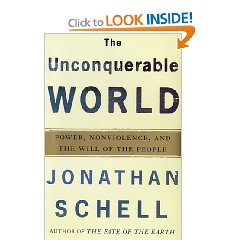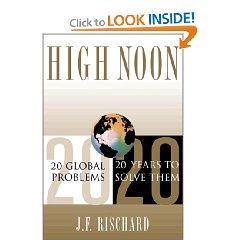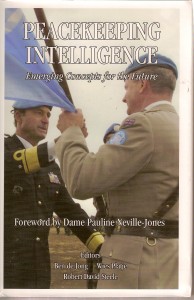I see things a little differently. I see this book as a massive indictment of the United Nations culture of “go along gently”, as a compelling documentary of how ignorant the United Nations is about impending disasters because of its persistent refusal to establish a UN intelligence secretariat as recommended by the Brahimi Report, and as a case study in how the Western nations have failed to establish coherent global strategies–and the intelligence-policy dialogues necessary to keep such strategies updated and relevant.
According to the author, 15 UN peacekeepers died–over 800,000 Rwandans died. The number 15 is not larger because Belgium, Canada, and the US explicitly stated that Rwanda was “irrelevant” in any sense of the word, and not worth the death of a single additional Western (mostly white) soldier.
Although there has been slight improvement in the UN since LtGen Patrick Cammaert, NL RM became the Military Advisor to the Secretary General (see General Cammaert and other views in Peacekeeping Intelligence: Emerging Concepts for the Future, the reality is that the UN is still unintelligent and unable to muster the strategic intelligence necessary to get the mandate right; the operational intelligence necessary to get the force structure right; and the tactical intelligence necessary to achieve the mission on the ground. Just about everything General Dallaire writes about in this book with respect to UN culture and UN lack of intelligence remains valid today: they still cannot get decent maps with which to plan a campaign or execute the mission; UN administrators are still anal-retentive bureaucrats that will not issue paper and pencils, much less soft drinks for diplomatic encounters; UN “seniors” still like the first class lifestyle on the road (they pretend to be austere only in NY); UN civilian mission leaders still misrepresent military reporting, as Booh-Booh did to Dallaire; and the UN is still ineffective in creating public intelligence with which to communicate directly to national publics the reasons why humanitarian operations must take place early and in force.
General Dallaire concludes his excruciatingly detailed book, a book with enormous credibility stemming from the meticulous manner in which he documents what happened, when it happened, and what everyone knew when (including advance warning of the genocide from the “third force” that the UN leadership refused to take seriously), with two thoughts, one running throughout the book, the second in the conclusion only:
First, and perhaps because of the mental toll he himself paid for this mission, there are frequent references throughout the book to the urgency of understanding the psychology of groups, tribes, and cultures. This is not something any Western intelligence agency is capable of today. The closest I have seen to this is Dr. Marc Sageman's book on Understanding Terror Networks We urgently need a global “survey”, with specific reference to the countries plagued by ethnic conflict and other sources of instability, and we need to start taking “psychological intelligence” very seriously. We need to UNDERSTAND.
Second, he concludes the book by emphasizing the urgency of understanding and then correcting the sources of the utter RAGE that characterizes hundreds of thousands if not millions of young men around the world, all of whom he says have access to guns and many of whom he says will ultimately and unavoidably have access to weapons of mass destruction.
As I contemplate the six-front hundred-year war that America has started by attacking Iraq instead of addressing the social networks and sources of terrorism, I cannot help but think that this great solider and statesman has hit the nail on the head: Rwanda is coming to your neighborhood, and nothing your policy makers and military leaders are doing today is relevant to avoiding that visitation. Remember the kindergarten class in Scotland? The Columbine shootings and Oklahoma disasters? Now magnify that by 1000X, aggravated by a mix of angry domestic militants, alienated immigrant gangs, hysterical working poor fathers pushed into insanity–and the free availability of small arms, toxins, and simple means for collapsing the public infrastructure….
The complexity of society, which has lost its humanity, is leading to unpredictable and difficult to diagnose and correct collapses of all the basic mechanisms of survival. General Dallaire's book is not about Rwanda–it is about us and what will happen to us if we persist in being unintelligent about our world and the forces that could–if we were wise–permit billions to survive in peace.
In addition to this book I recommend the PKI book mentioned above, Jonathan Schell's book on The Unconquerable World: Power, Nonviolence, and the Will of the People Bill Moyer's on Doing Democracy, and Tom Atlee on The Tao of Democracy: Using Co-Intelligence to Create a World That Works for All. If we do not take back the power and restore common sense to how our nations behave and how our nations spend our money around the globe, the plague of Rwanda will visit our neighborhoods within the decade.
See also:
How to Prevent Genocide: A Guide for Policymakers, Scholars, and the Concerned Citizen
The New Craft of Intelligence: Personal, Public, & Political–Citizen's Action Handbook for Fighting Terrorism, Genocide, Disease, Toxic Bombs, & Corruption











